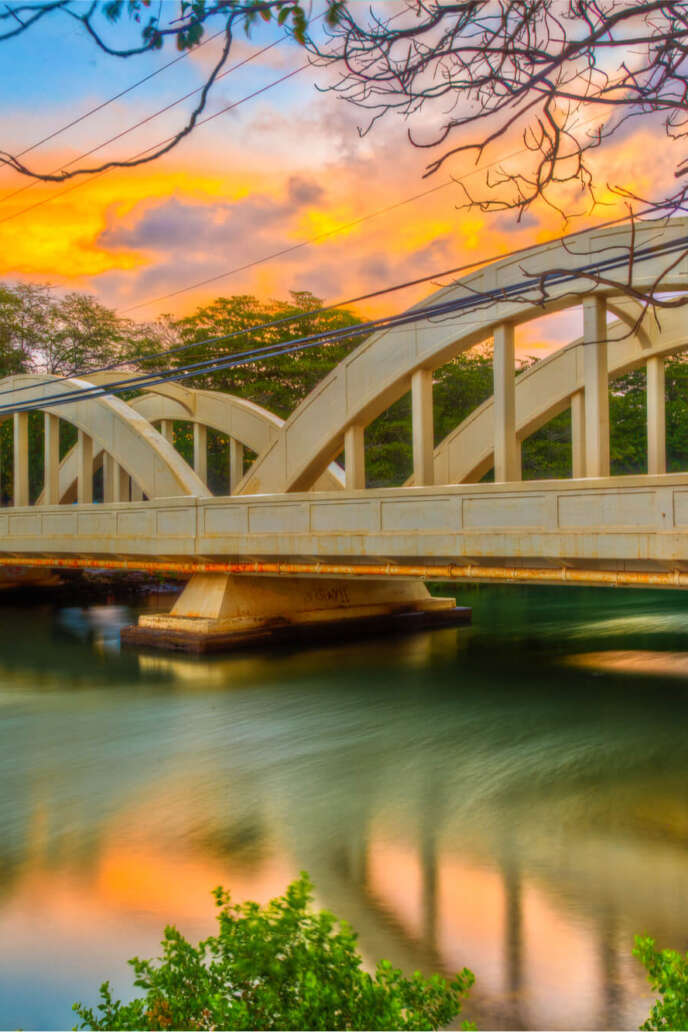The Haiku Stairs, famously known as the Stairway to Heaven, is a steep hiking trail on Oahu, Hawaii, renowned for its historical significance and breathtaking panoramic views. Originally constructed during World War II to facilitate the installation of a radio antenna, the stairs have since become a symbol of adventure and allure for hikers. However, due to safety hazards and legal restrictions, accessing the trail has been prohibited. This article delves into the history, allure, legal and safety concerns, community impact, and potential future of Haiku Stairs, while emphasizing the importance of respecting the current restrictions.
History
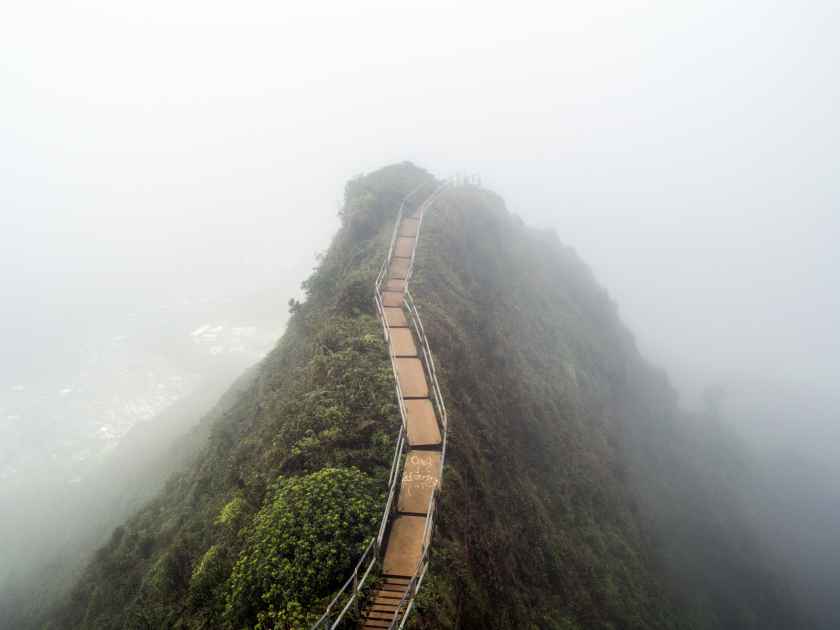
Military Roots (1942-1943)
The Haiku Stairs, also known as the Stairway to Heaven, have a rich history intertwined with Oahu’s strategic importance during World War II. Built between 1942 and 1943, the stairs were constructed to provide access to a top-secret US Naval Radio Station nestled in Haiku Valley. The valley’s natural amphitheater shape made it ideal for long-range transmissions. The initial construction involved scaling the cliffs, a task completed in just 21 days.
Evolution of the Stairs
Following the initial phase, wooden stairs were installed to replace the original climbing route. Over time, metal steps and ramps were added, creating the now-famous 3,922-step path that adventurers know today. These enhancements transformed the Haiku Stairs into a more accessible and enduring structure.
Public Access and Closure
In the 1970s, the Coast Guard allowed public access to the Haiku Stairs, sparking interest among locals and tourists alike. The stairs’ popularity surged after being featured on the television show Magnum P.I., but this fame led to issues with overcrowding and safety. As a result, the trial was officially closed in 1987 to address these concerns.
Current Status (Illegal)
In 2021, the City Council voted to remove the stairs due to ongoing safety concerns and trespassing issues. As of April 2024, the dismantling of the stairs is underway. Trespassing on the land is illegal, and authorities strictly enforce this prohibition. Despite these measures, there are ongoing efforts by groups like the Friends of Ha’ikū Stairs to explore possibilities for a safe, regulated future for the stairs. However, for now, the Haiku Stairs remain off-limits to the public.
The Allure of Haiku Stairs
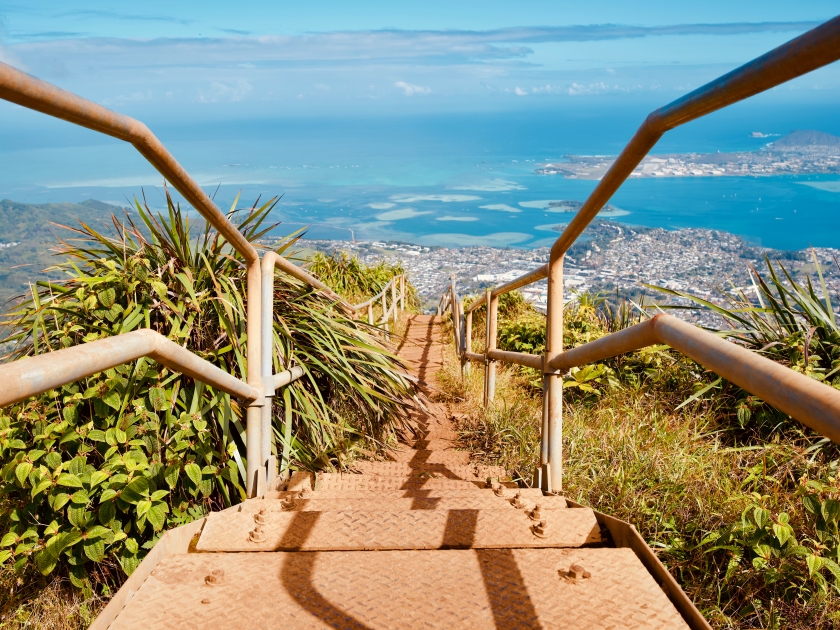
The Haiku Stairs, known as the Stairway to Heaven, offer a trail that winds through lush greenery and cliffs, culminating in breathtaking panoramic views of Oahu. Along the 3,922-step journey, hikers encounter numerous photogenic spots showcasing the island’s natural beauty, from verdant valleys to expansive ocean vistas. Its awe-inspiring scenery and the seemingly endless ascent toward the sky earned the trail its celestial nickname, making it a coveted yet controversial destination for adventurers.
Legal and Safety Concerns
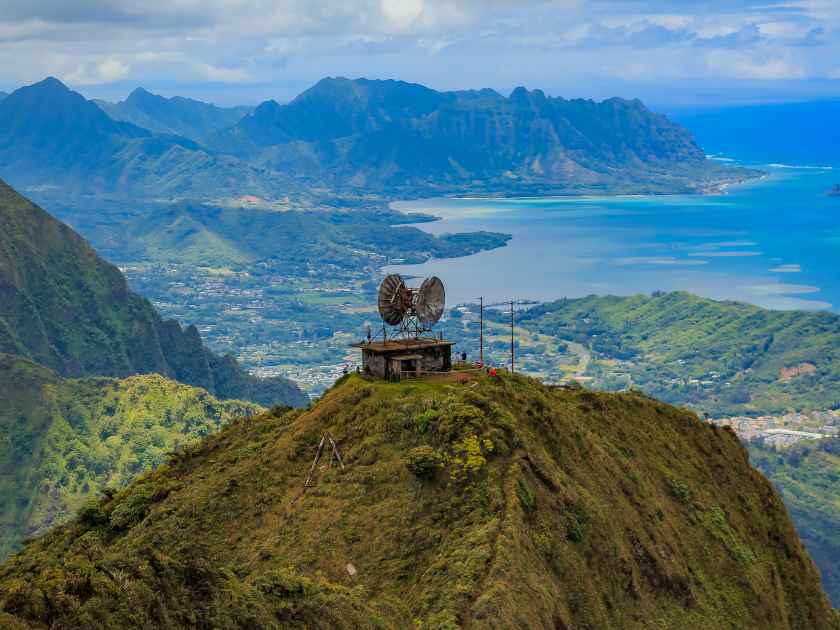
The Haiku Stairs are currently off-limits, with strict legal restrictions prohibiting access due to significant safety hazards. The steep, slippery steps and deteriorating sections of the trail pose serious risks to hikers, leading to numerous incidents and rescue operations over the years. Despite the ban, illegal attempts to hike the stairs continue, further complicating efforts to ensure safety and legal compliance.
Community and Environmental Impact
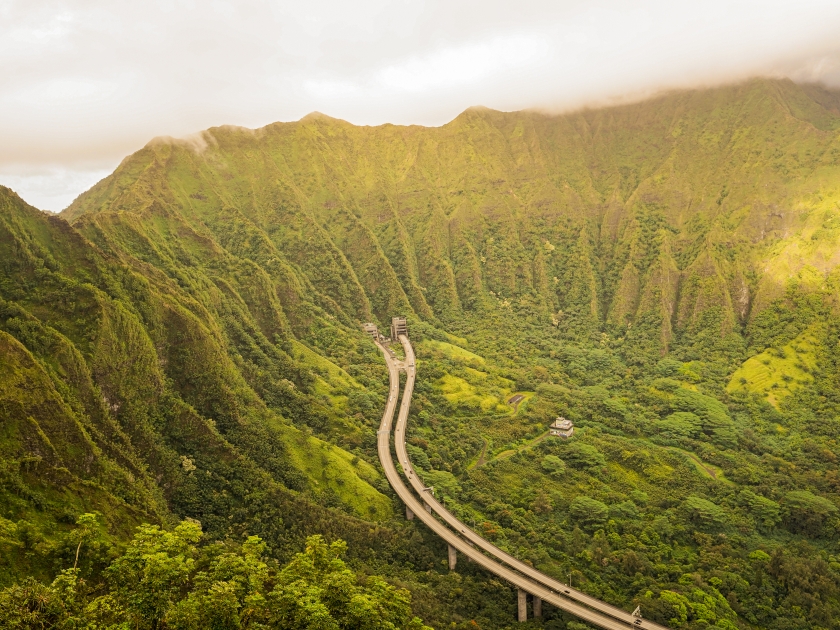
Illegal hiking on the Haiku Stairs has had significant negative effects on the local community, including increased traffic, noise, and trespassing on private property. Additionally, unauthorized access has led to environmental damage, such as erosion and disturbance to native vegetation and wildlife. In response, local authorities and community groups, such as the Friends of Haiku Stairs, have been working to mitigate these impacts through enforcement of trespassing laws, public awareness campaigns, and exploring options for a regulated future that balances preservation and access.
Alternatives to Haiku Stairs
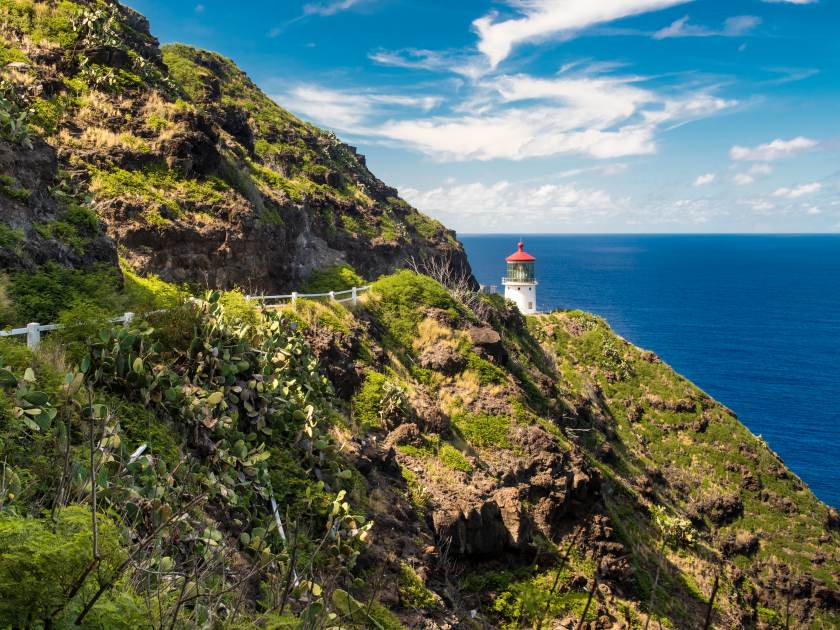
For those seeking legal alternatives to the Haiku Stairs with similar scenic views, several hiking trails in Oahu offer breathtaking experiences. The Makapu’u Point Lighthouse Trail provides stunning coastal vistas, while the Lanikai Pillbox Hike rewards trekkers with panoramic views of the Mokulua Islands and turquoise waters. The Koko Crater Railway Trail offers a challenging ascent with expansive views of the island. Additionally, adventurers can explore nearby attractions such as the lush Manoa Falls or the historic Diamond Head Crater, ensuring safe and memorable experiences in Oahu’s natural beauty.
Future of Haiku Stairs
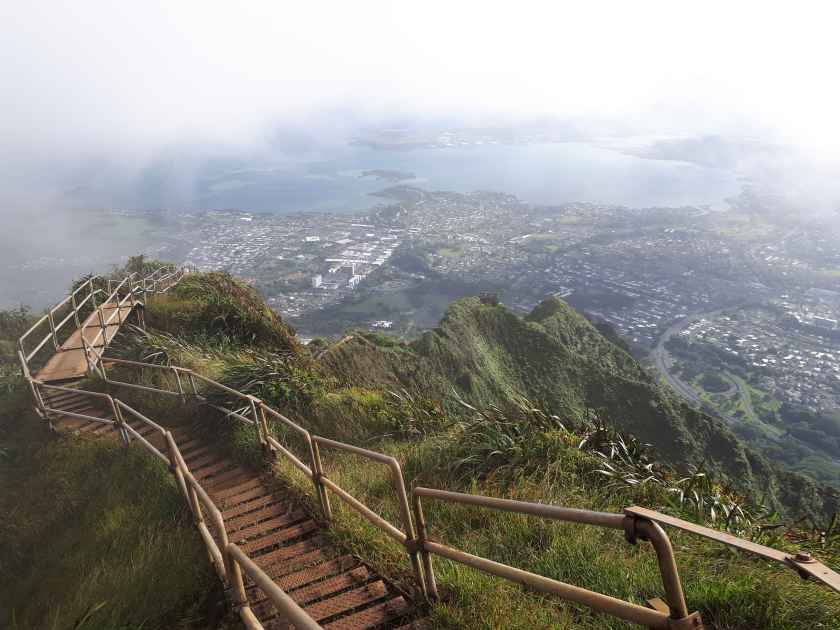
The future of the Haiku Stairs remains a topic of active discussion, with local authorities and community groups exploring various proposals. Potential solutions include dismantling the stairs entirely or establishing a managed access system with strict regulations to ensure safety and preservation. These discussions emphasize the importance of balancing public interest with environmental conservation and community impact. Respecting current regulations and supporting efforts to protect the natural environment are crucial as stakeholders work towards a sustainable resolution for the Haiku Stairs.
Frequently Asked Questions (FAQs)
The Haiku Stairs, also known as the “Stairway to Heaven”, is a steep hiking trail on the island of Oahu, Hawaii. It’s known for its stunning views and 3,922 steps that lead up to the top of the Ko’olau mountain range.
As of now, it’s illegal to climb the Haiku Stairs due to safety concerns and respect for the residents. Trespassers can face fines and even community service.
The Haiku Stairs got their name from the area they’re in, Haiku Valley. The stairs were built during World War II for military access to a radio station antenna at the summit.
The Haiku Stairs have been closed due to safety hazards, liability issues, and concerns about the environmental impact on the surrounding area.
Currently, there is no legal access to the Haiku Stairs, but discussions about creating a legal, managed access route are ongoing.
Penalties for hiking the Haiku Stairs can include fines up to $1,000 and possible court appearances for trespassing on private property.
Help Safeguard the Serene Beauty of Haiku Stairs
The Haiku Stairs, known for their historical significance and stunning views, are currently off-limits due to safety and legal concerns. Illegal hiking has negatively impacted the local community and environment, prompting ongoing efforts to find a balanced resolution. Instead, adventurers are encouraged to explore other beautiful and legal hiking trails on Oahu. Share this article to spread awareness about the issues surrounding the Haiku Stairs and to join community efforts to protect Hawaii’s natural environment. For updates on the status of the Haiku Stairs and more information on responsible hiking, visit official sources and local community group websites.



